| Acoustics of the clarinet |
Bb clarinet |
D#4 |
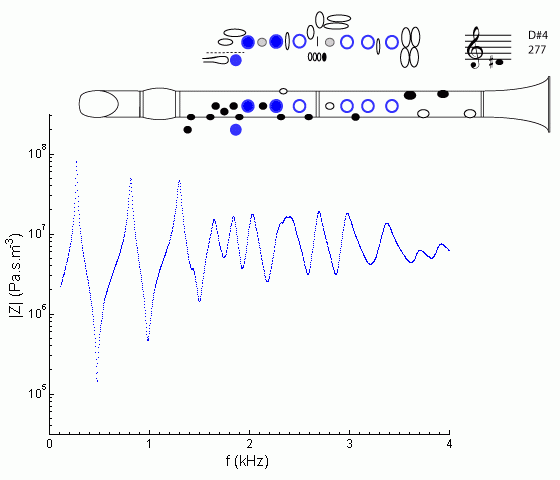
|
Fingering Acoustic schematic Non-specialist introduction
to acoustic impedance Notes are the written pitch. |
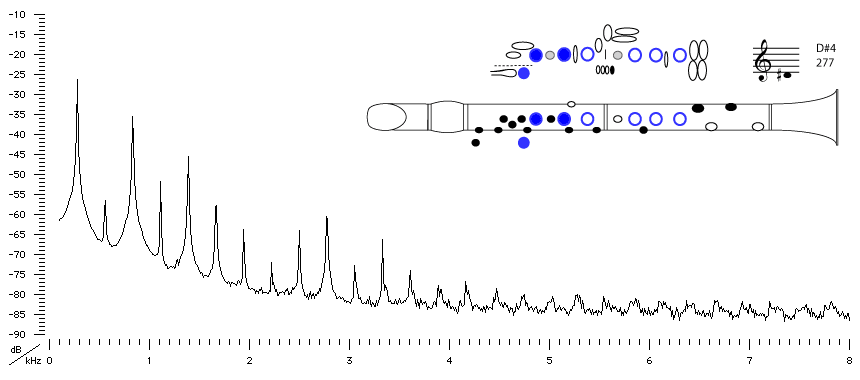
Sound spectrum
of a Bb clarinet
played using fingering for D#4.
For more explanation, see
Introduction to clarinet acoustics
Alternative Fingering 1 |
Bb clarinet |
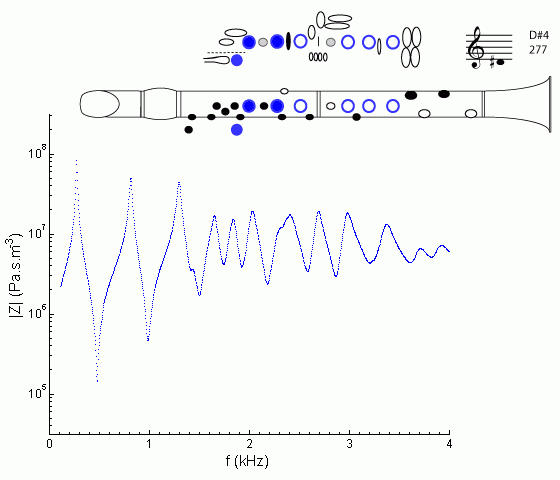 |
Fingering Acoustic schematic Non-specialist introduction
to acoustic impedance Notes are the written pitch. |
As we progress up the first register, more and more of the harmonics fall above the cut-off frequency. Here, only the first two resonances fall near harmonics, so the second harmonic in the sound spectrum is the only even harmonic that is clearly weaker than its odd neighbours.
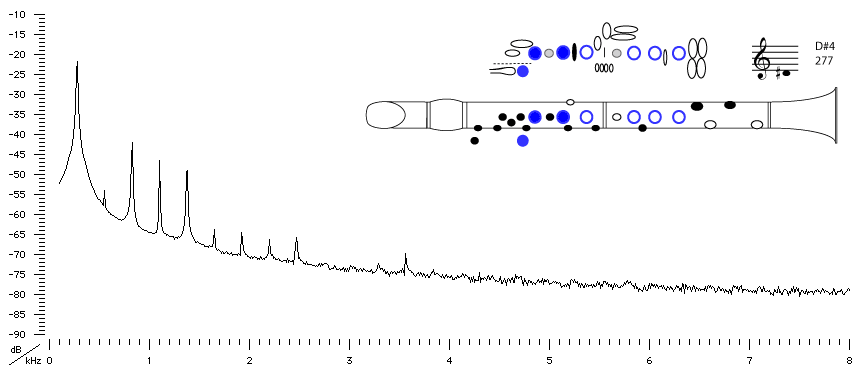
Alternative Fingering 2 |
Bb clarinet |
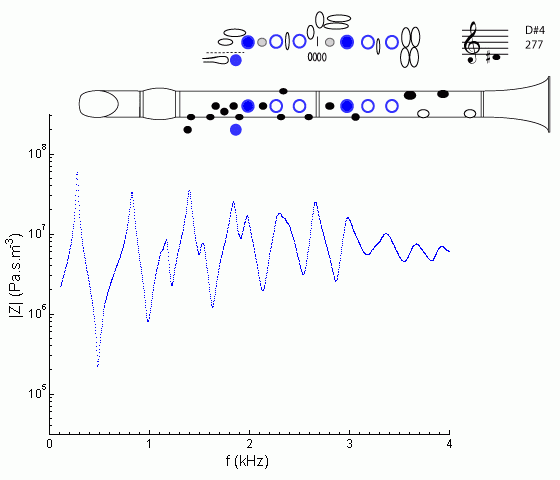 |
Fingering Acoustic schematic Non-specialist introduction
to acoustic impedance Notes are the written pitch. |
Impedance spectrum of a Bb clarinet measured using a second alternative fingering for D#4.
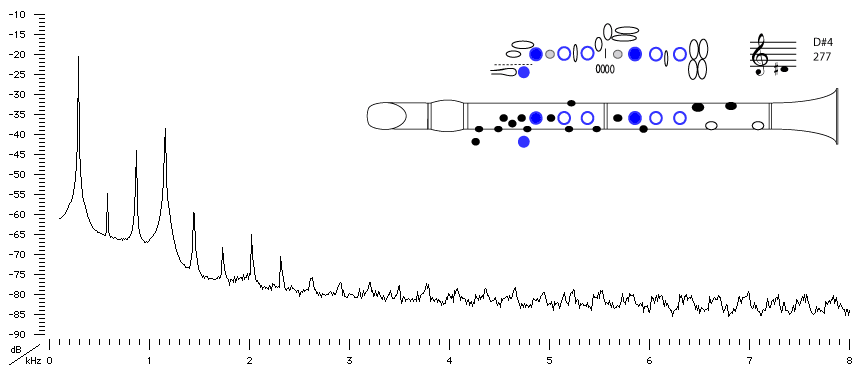
Sound spectrum of a Bb clarinet played using a second alternative fingering for D#4.
For more explanation, see Introduction to clarinet acoustics
![]()
![]() You can hear D#4 played with a second alternative fingering.
You can hear D#4 played with a second alternative fingering.
|
Contact:
Joe Wolfe
/ J.Wolfe@unsw.edu.au |